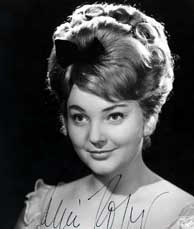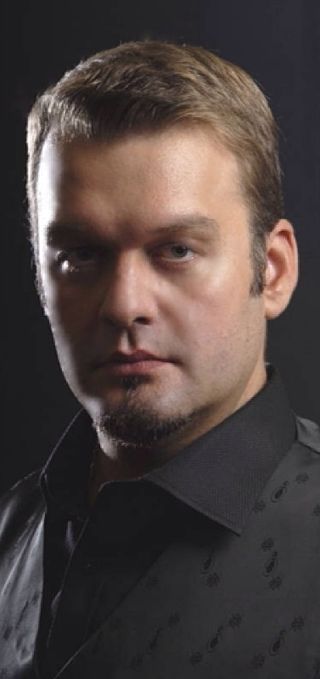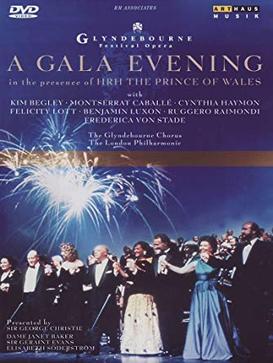
Don Giovanni is an opera in two acts with music by Wolfgang Amadeus Mozart to an Italian libretto by Lorenzo Da Ponte. Its subject is a centuries-old Spanish legend about a libertine as told by playwright Tirso de Molina in his 1630 play El burlador de Sevilla y convidado de piedra. It is a dramma giocoso blending comedy, melodrama and supernatural elements. It was premiered by the Prague Italian opera at the National Theater, now called the Estates Theatre, on 29 October 1787. Don Giovanni is regarded as one of the greatest operas of all time and has proved a fruitful subject for commentary in its own right; critic Fiona Maddocks has described it as one of Mozart's "trio of masterpieces with librettos by Da Ponte".
The Stoned Guest is a "half-act opera" by Peter Schickele in the satirical persona of P. D. Q. Bach. The title is a play on the "stone guest" character in Don Giovanni by Mozart, as well as the opera The Stone Guest by Alexander Sergeyevich Dargomïzhsky after the play by Pushkin. The work is a parody of classical opera. The opera appears on the 1970 album of the same name.

Joseph, Baron Van Damme, known as José van Dam, is a Belgian bass-baritone.

Lucia Popp was a Slovak operatic soprano. She began her career as a soubrette, and later moved into the light-lyric and lyric coloratura soprano repertoire and then the lighter Richard Strauss and Wagner operas. Her career included performances at Vienna State Opera, the Metropolitan Opera, Covent Garden, and La Scala. Popp was also a highly regarded recitalist and lieder singer.

Ruggero Raimondi is an Italian bass-baritone opera singer who has also appeared in motion pictures.
Barbara Frittoli is an Italian operatic soprano, specializing in operas by Verdi and Mozart. She has sung leading roles in opera houses throughout Europe and in the United States, such as La Scala in Milan and the Metropolitan Opera in New York. Her signature roles include Mimì in La bohème, the Countess in The Marriage of Figaro, Donna Elvira in Don Giovanni, Desdemona in Otello.
John Macurdy was an American operatic bass, who sang at the Metropolitan Opera 1,001 times from 1962 to 2000. Among his teachers was the contralto Elisabeth Wood of New Orleans, who was also the pedagogue of Norman Treigle.
"Madamina, il catalogo è questo" is a bass catalogue aria from Mozart's opera Don Giovanni to an Italian libretto by Lorenzo Da Ponte, and is one of Mozart's most famous and popular arias.
Don Giovanni, o sia Il convitato di pietra, also known as Don Giovanni Tenorio is a one-act opera by the Italian composer Giuseppe Gazzaniga. The opera was first performed at the Teatro San Moisè, Venice, on 5 February 1787, the same day as Francesco Gardi's opera Don Giovanni in the same city at the Teatro San Samuele The libretto, by Giovanni Bertati, is based on the legend of Don Juan as told by Tirso de Molina in his play The Trickster of Seville and the Stone Guest (c. 1630), leading to comparisons with Mozart's Don Giovanni which had its premiere later in 1787. Mozart's librettist, Lorenzo Da Ponte, certainly knew the earlier opera. Gazzaniga's work is much shorter than Mozart's, and originally formed part of a double-bill with another piece, Il capriccio drammatico.

Marina Poplavskaya is a Russian operatic soprano. Her repertoire includes leading roles in operas of the Romantic era; she is particularly known for her performances in the operas of Verdi.
Flammen (Flames) is an opera in two acts and ten scenes composed by Erwin Schulhoff, his only opera. The original libretto in Czech was written by Karel Josef Beneš. The opera had its world premiere at the old National Theatre in Brno on 27 January 1932 in Czech under the title Plameny. It was not heard again until the mid-1990s, when it was performed in its German translation by Max Brod as Flammen. Its story is a surrealist retelling of the Don Juan legend with elements from the legend of the Wandering Jew, and heavily influenced by Freudian psychology. Unlike the title character in Mozart's Don Giovanni based on the same legend, Don Juan is not punished by being dragged down to Hell, but instead is condemned to live forever.
Reginald Beck was a British film editor with forty-nine credits from 1932 to 1985. He is noted primarily for films done with Laurence Olivier in the 1940s and with Joseph Losey in the 1960s and 1970s.

Sorin Coliban is a Romanian opera singer with an international career. His voice range is bass–baritone. He is known for the volume and projection of his voice, both of which help him to sing both bass and baritone roles. He is one of the few singers to have performed with two different voices in the same performance: bass-baritone and countertenor.

The Mozart Brothers is a 1986 Swedish comedy film directed by Suzanne Osten. Osten won the award for Best Director at the 22nd Guldbagge Awards.
Don Juan is a 1955 Austrian musical film directed by Walter Kolm-Veltée and starring Cesare Danova, Josef Meinrad and Evelyn Cormand. It is an adaptation of the 1787 Mozart opera Don Giovanni.
Sine Merrild Bundgaard, born 15 January 1970 in Aarhus, is a Danish soprano. Educated at the Royal Danish Academy of Music and the Danish Opera Academy, she debuted in 1999 at the Royal Danish Theatre in the role of Barbarina in Mozart’s The Marriage of Figaro. She has appeared in many European opera houses, including the Paris Opera, the Bavarian State Opera (Munich) and the Drottningholm Palace Theatre (Stockholm).
Il convitato di pietra is a 1832 opera by Pacini originally written for private performance by the composer's own family and friends. The libretto by Gaetano Barbieri, librettist of Il Talismano, was compiled from earlier librettos telling the story of Mozart's Don Giovanni, including Bertati's for Gazzaniga, but with changes including the removal of the role of Elvira.
Luise Helletsgruber was an Austrian operatic soprano, who performed at the Vienna State Opera, the Salzburg Festival and the Glyndebourne Festival Opera.

Glyndebourne Festival Opera: A Gala Evening was a 111-minute concert staged by Glyndebourne Festival Opera on 24 July 1992, performed by Kim Begley, Montserrat Caballé, Cynthia Haymon, Felicity Lott, Benjamin Luxon, Ruggero Raimondi and Frederica von Stade with the Glyndebourne Festival Chorus and the London Philharmonic Orchestra under the direction of Sir Andrew Davis and Sir Bernard Haitink. It was televised in the United Kingdom by the BBC and released on VHS Videocassette by Kultur Video and on DVD by Image Entertainment, Arthaus Musik and Geneon.
Kyle Ketelsen is an American bass-baritone opera singer.








